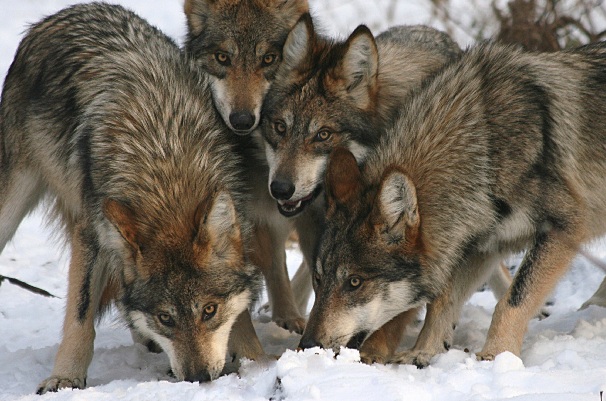22
Jun
New Book: The Carnivore Way

Washington, DC (May 1, 2014) — From naming superheroes and luxury cars after them to hunting them to the brink of extinction, humans have complicated relationships with the large carnivores that roam the open spaces of western North America—the grizzly bear, wolf, wolverine, lynx, cougar, and jaguar. In The Carnivore Way: Coexisting with and Conserving North America’s Predators (Publication Date: May 1, 2014), noted scientist Cristina Eisenberg examines each animal’s relationship with its surroundings and with humans, revealing the threats these species face and how we can address them in ways that work for humans and nature alike.
Carnivores may frighten and impress us, but that doesn’t mean scientists know all there is to know about them. Eisenberg shows not only how we’re still learning about elusive species like wolverines and jaguars, but also how carnivores, including the wolf, affect the broader ecosystems in which they live, influencing prey species as well as plant growth and songbird populations. The Carnivore Way shows how places that have lost species are poorer for it, and brings readers into the field with scientists who are making new discoveries.
One of Eisenberg’s key lessons is that just like their ecological effects, carnivores cannot easily be contained. While their typical home ranges may be compact, individuals often disperse over vast distances in search of food, territory, or mates. Fences and highways that block access to new habitat are among the most pressing threats to healthy carnivore populations. Eisenberg also shows how the dangers humans face from carnivores have been misunderstood and exaggerated, and argues that because these species tend to avoid humans, trouble usually only arises when people feed or disturb them.
Eisenberg offers the first comprehensive overview of endangered species and wildlife management legislation covering these species in the United States, Canada, and Mexico at the federal and state levels, explaining how these laws affect carnivores. She details the struggle to balance the competing viewpoints of hunters, ranchers, recreationists, and conservationists and explains why transboundary cooperation is crucial to recover and conserve animals that don’t recognize boundaries.
A poignant call to give animals the room they need to roam, The Carnivore Way provides a compelling blend of accessible science and engaging narrative. Eisenberg offers stories of her own experiences as a scientist, mother, hunter, and recreationist and shares those of others with compassion for both humans and animals that highlights how much we have in common. The Carnivore Way argues that with respect and consideration for carnivores, we can coexist with them in peace.
Cristina Eisenberg conducts trophic cascades research focusing on wolves in Rocky Mountain ecosystems. She teaches ecological restoration and public policy in the College of Forestry at Oregon State University and is a Smithsonian Research Associate and Boone and Crockett Club professional member. Dr. Eisenberg has authored multiple peer-reviewed scientific and literary journal articles and several book chapters. Her first book, The Wolf’s Tooth: Keystone Predators, Trophic Cascades and Biodiversity, was published in 2010 by Island Press.
You can read more reviews HERE.
You can order The Carnivore Way from the Wolf Conservation Center by clicking HERE.
**************************************************************************************************************************************
Click here to join our email list for Mexican gray wolf updates and action alerts.
Visit us on Facebook here.
Donate to support our work for Mexican gray wolf recovery here.
Click here to join our email list for Mexican gray wolf updates and action alerts.
Visit us on Facebook here.
Donate to support our work for Mexican gray wolf recovery here.



